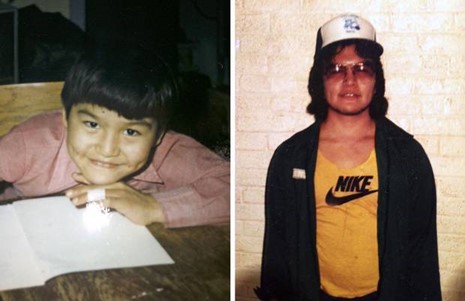BLOG
Cory Wilson is a criminal defence lawyer, serving Calgary, Okotoks, Airdrie, Strathmore, Cochrane, Canmore, Didsbury, Medicine Hat, Lethbridge and Turner Valley.

In 1983, Phillip Tallio was accused of sexually assaulting and suffocating his 22-month old cousin. Despite a psychologist who spoke with Tallio at the time and found that he had the mental capacity of a 12-year-old, Tallio pled guilty to second-degree murder and has been incarcerated for 37 years. Though he was eligible for parole 10 years after his conviction, the Parole Board refused to release Tallio because he would not admit his guilt in the offence.
Tallio originally pled not guilty, but his then lawyers changed that plea to guilty nine days into his trial. Despite his guilty plea, Tallio has maintained his innocence for 37 years. Last year, Tallio’s new lawyers successfully applied to appeal his conviction, three decades after the appeal deadline expired.
This week, at the British Columbia Court of Appeal, Tallio’s lawyers will ask that judges to allow the now 54-year-old to withdraw his guilty plea and order an acquittal or stay of proceedings.
Tallio’s lawyers claim that the conviction was a miscarriage of justice fuelled by police “tunnel vision”, incompetent legal counsel and questionable tactics of a controversial forensic psychiatrist. Tallio has maintained that he did not kill his cousin and was simply the person who found the body.
If lawyers are successful in the appeal, Tallio’s 37 years behind bars will be the longest any Canadian inmate in modern times has served before having their conviction overturned.
The key pieces of evidence against Tallio were two records of his alleged confessions. One, which was made to RCMP and thrown away by a trial judge because of concerns it was involuntary, and another allegedly made to a psychiatrist who is no longer alive.
A Pivotal Moment
Over a decade ago, Tallio’s case was taken on by the University of British Columbia Innocence Project – a volunteer organization in which students and lawyers investigate claims of wrongful convictions. A young student named Rachel Barsky was assigned to the case in 2008. She used her investigative skills learned through her undergraduate degree in journalism to sift through the case and look for new evidence. As she did so, she uncovered incredible new evidence that was not presented at Tallio’s trial.
The evidence includes affidavits and testimony from dozens of people who were not interviewed in 1983 as well as new DNA evidence. It is this evidence which persuaded the BC Court of Appeal to allow the appeal to proceed.
Tallio’s lawyer’s primary arguments on appeal are that he received inadequate legal counsel and that his cognitive abilities were so low that he did not understand the consequences of his guilty plea at the time he made it.
DNA evidence which includes samples taken from the victim’s autopsy that were stored at the BC Children’s Hospital is an important aspect of the appeal. In two rounds of testing, scientists found the presence of DNA belonging to a different male. Tallio’s lawyers argue that the DNA is that of the true killer, Cyril Tallio, their client’s uncle.
Cyril Tallio, now dead, had a criminal record for child sexual assault and was seen by members of the community at the house where the victim was sexually assaulted and killed. Witnesses found by the defence also claim that Cyril was seen carrying garbage bags from the house where the child was killed and headed to an area where smoke was later seen.
Dangerous and Unreliable Confession
Within 24 hours of his arrest, RCMP claimed they had a confession. During his first two interrogations, both of which were audio-recorded, Tallio maintained his innocence. In a third interview, a police officer claimed Tallio confessed but the audio device stopped working and the confession was not recorded. This confession was ruled inadmissible. However, Tallio was remanded to the BC Forensic Psychiatric Institute for a mental fitness assessment. While there, a psychiatrist claimed Tallio gave answers that suggested he was guilty.
According to appeal documents, another psychiatrist who worked with the original doctor said the methods used are widely seen as “objectively dangerous and unreliable”.
Unaware of the Consequences of Pleading Guilty
According to the defence, Tallio did not understand much of what was going on when he pled guilty but trusted his lawyer. He was unaware that pleading guilty meant that he was admitting to raping and killing his cousin, according to court documents.
On appeal, Tallio’s lawyer will argue that the guilty plea was not voluntary, unequivocal and informed and that the conviction was a miscarriage of justice.
Cory Wilson is a criminal defence lawyer based in Calgary. If you have been charged with a criminal offence or are a suspect in a criminal investigation, call today for a free, no obligation consultation.